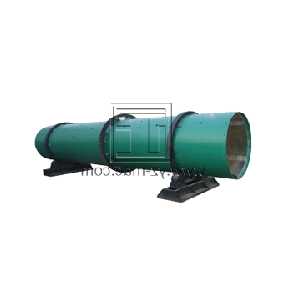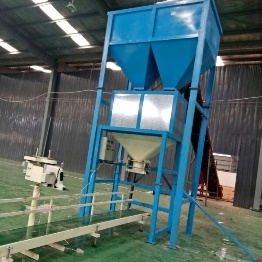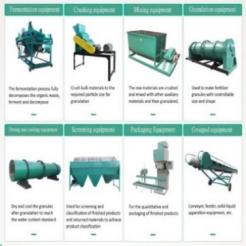Composting equipment
Composting equipment plays a crucial role in the efficient and effective process of converting organic waste into nutrient-rich compost. Various types of composting equipment are available, each designed to cater to different scales of operation and specific composting requirements.
Compost Turners:
Compost turners are machines designed to aerate and mix the compost pile, promoting decomposition and accelerating the composting process. They come in various configurations, including tractor-mounted turners, self-propelled turners, and hand-operated turners. Compost turners are commonly used in large-scale composting operations, such as municipal composting facilities and commercial composting sites. They efficiently mix and aerate the compost pile, ensuring proper oxygen supply for microbial activity and facilitating temperature control.
Applications: Municipal composting, commercial composting, large-scale organic waste processing.
Compost Mixers:
Compost mixers are equipment used to blend and homogenize different composting materials. They ensure the even distribution of various components, such as green waste, food scraps, and bulking agents (e.g., wood chips or straw), to create a well-balanced compost mixture. Compost mixers can be stationary or mobile, with options ranging from small-scale mixers suitable for backyard composting to large-scale mixers used in industrial composting facilities.
Applications: Backyard composting, commercial composting, compost production facilities.
Compost Screens:
Compost screens, also known as trommel screens or vibrating screens, are used to separate larger particles, rocks, and contaminants from the finished compost. They ensure a refined compost product with a consistent particle size and remove unwanted materials that could affect the quality of the compost. Compost screens come in various sizes and configurations, allowing for different screening capacities and applications.
Applications: Agriculture, gardening, landscaping, soil remediation.
Compost Shredders:
Compost shredders, also referred to as compost grinders or chipper shredders, break down organic waste materials into smaller fragments, accelerating the composting process. They increase the surface area of the materials, allowing for faster decomposition and improved compost quality. Compost shredders can handle various organic waste materials, including branches, leaves, kitchen scraps, and garden waste.
Applications: Backyard composting, commercial composting, landscaping, organic waste reduction.
Compost Bagging Machines:
Compost bagging machines are utilized to package and seal compost into bags or containers for storage, transportation, or sale. These machines automate the bagging process, ensuring efficiency and consistency. They are commonly used in commercial composting facilities and compost product manufacturing.
Applications: Commercial composting, compost product manufacturing, retail distribution.
Compost Curing Systems:
Compost curing systems provide controlled environments for compost maturation and stabilization. They offer features like adjustable aeration, moisture control, and temperature monitoring to facilitate the final stage of the composting process. Compost curing systems are typically used in large-scale composting operations to ensure the production of mature and stable compost.
Applications: Commercial composting, large-scale compost production.
Conclusion:
Composting equipment encompasses a wide range of machines designed to support efficient organic waste management and compost production. From compost turners and mixers to screens, shredders, bagging machines, and curing systems, each type of equipment plays a vital role in different stages of the composting process. Understanding the applications and benefits of various composting equipment options helps choose the appropriate equipment for specific composting needs, whether it be small-scale backyard composting, commercial composting operations, or large-scale compost production facilities. Utilizing the right composting equipment enhances the efficiency, quality, and sustainability of organic waste management practices, contributing to a healthier environment and promoting the use of nutrient-rich compost for soil improvement and plant growth.







